How Anthony Rapp and Wilson Cruz Brought Same-Sex Love To Space
Wilson Cruz and Anthony Rapp have created an indelible, unforgettable married gay couple on "Star Trek: Discovery."

Ask Wilson Cruz and Anthony Rapp to name their favorite Star Trek series and character, and you fundamentally get the same answer.
“There are episodes of every series that are great,” says Rapp, who stars as Lt. Cmdr. Paul Stamets on Star Trek Discovery, the ship’s genius of an engineer. “But the one I think that had the biggest impact for me, because I saw the shows as a kid, was the original series — and Leonard Nimoy as Spock.”
“I was going to say Spock!” interjects Cruz, who co-stars on Discovery as the ship’s deeply empathetic doctor, Hugh Culber. “So now I’m going to give my second favorite answer: Next Generation. I really see a lot of Dr. Beverly Crusher and Guinan, Whoopi Goldberg’s character, in Dr. Culber. So those two characters are my favorite.”
On Discovery, a spectacular cornerstone of the increasingly indispensible Paramount+ streaming service, Stamets and Culber are a married gay couple, with all the romance and love and friction and anxiety that comes with being in a relationship on a starship whose very existence is threatened with obliteration season after season.
There will be no spoilers here for anyone who has yet to watch Discovery, other than to say both Stamets and Culber go through extraordinary trials that place their emotions at the fore, and that Season 4, which recently concluded, was the show’s finest moment yet.
Rapp and Cruz, longtime friends, and both out gay actors, bring richness and believability to the couple, and help to make Discovery the most LGBTQ-inclusive of all the series. Picard is catching up, though, with a budding LGBTQ couple of its own, and the franchise’s newest entry, the extraordinary Strange New Worlds, a Discovery spin-off, feels like it’s also beginning to lean in an LGBTQ direction with regard to a few key characters.
The torch-bearers of Star Trek are not just paying lip service to the LGBTQ fanbase, but have heard them, loud and clear, and after some failed missteps in the movies, are embracing full LGBTQ diversity with intelligence, heart, and authenticity.
Cruz, who rose to national fame in the terrific but short-lived 1994 drama series My So-Called Life, and Rapp, beloved from his youth in Adventures in Babysitting, and then later, planting his flag in entertainment history as Mark Cohen in the original Broadway production of Rent, are among the most recognizable out actors of our generation.
Both Cruz and Rapp will appear at the upcoming AwesomeCon in Washington, D.C., over the weekend of June 3 through 5. They’ll appear in a moderated conversation on the main stage on June 4, at 4:15 p.m.
Ahead of the event, we spoke with the pair on a joint Zoom call about “life” on the USS Discovery, the need for authentic LGBTQ representation in film and television, and, as both are outspoken activists for LGBTQ causes, their feelings on the recent Supreme Court leak that puts abortion rights — and, potentially, LGBTQ equality — into peril.

METRO WEEKLY: On Star Trek Discovery, your involvement is historic as the first gay couple in the franchise in major recurring roles, both played by out gay actors. What does that mean for the two of you?
ANTHONY RAPP: I came to know how hungry the Star Trek fan community was for this kind of representation. There is a very active portion of the fandom that is queer. I think they agitated a bit for representation, but recognized it wasn’t probably likely to happen. So, it’s on the one hand, I’m sorry that it took so long, but on the other hand, the fact that it was given to us to carry the mantle is an incredible honor.
WILSON CRUZ: I couldn’t agree more with my friend Anthony Rapp, but I will also add that I also love the way that we went about it. We first met these characters in our official duties on the ship as doctor and engineer science — I don’t even know what he’s —
RAPP: Astromycologist.
CRUZ: But you were in the engineering room, is what I’m saying. And we met these people in their professional capacities first and got to know them in that way.
And then their relationship was revealed in the most mundane yet lovely moment — while we were brushing our teeth in our quarters. For me, that communicated that we were going to treat these people as a couple, just like any other couple in the universe, and they were going to reveal themselves as individuals, but also as a unit. To me, that was really interesting to play instead of it being a special episode of Star Trek. We were part of the world as it should be. It meant a great deal to me.
RAPP: We were really conscious of how special that little scene in the bathroom was, when we’re brushing our teeth. But I think we also knew that because it was subtle and small in the way that we were doing this reveal, we didn’t really know how it would land exactly or if it would have any impact per se. And then when it did air, the impact was resounding and immediate. And that was very, very satisfying.
CRUZ: Truly. I think the reason why the scene worked so well is because there was such tenderness in it. You could picture these people having done this every night. It was just really sweet in that way.
MW: Over the seasons, you see how fully formed the relationship is. It doesn’t simply pander to the LGBTQ audience as a boilerplate nod. This year, for instance, Stamets stepped up to support his husband through a huge crisis.
RAPP: It’s very satisfying to be given such rich material to play. On the one hand, we’re doing the adventures and everything, but to have this to also turn to is really, really wonderfully rich.
CRUZ: It feels earned. Because of what these characters have been through together. It feels real, and you believe it. And I also think that speaks volumes about the relationship Anthony and I have, and the willingness to be vulnerable with each other in those scenes. I can’t say enough about it.

MW: Were the two of you friends before the series?
CRUZ: I’ve known this fool for 26 years. Is it 26 now, baby?
RAPP: It’ll be — no, it’s 25 years.
CRUZ: It’s our silver anniversary!
RAPP: It was the summer of ’97. I was still doing Rent on Broadway, but my mom had passed away that May. And that summer, I took a little vacation to clear my head and reset. And I went to California and they were rehearsing the La Jolla production of Rent. And I wanted to go and meet them and say, hello. That’s the first time I met Wilson in person.
But we really connected when he came to do the show in New York. He replaced Wilson Jermaine Heredia three or four weeks before I left the show in New York.
CRUZ: We overlapped for a month.
RAPP: So we had that overlap. And then we’ve crossed paths throughout these decades. But I certainly knew who Wilson was from My So-Called Life, which, for me, had been such a touchstone as a young actor, as a young artist, hoping to be able to do meaningful work.
When I watched that show, I was like, this is the kind of work that I want to be associated with. The quality of everyone in the show was the quality of work that I wanted to do. So I had that relationship to him and his work before, and then we became friends during Rent.
When they were casting Discovery, I got cast first and I was talking to the producers like, “Who do you think is going to play Hugh?” And they’re like, “We’ve got a couple of names,” and they mentioned Wilson. I was crossing my fingers that he’d be the one, that it would work out. So I was very, very happy when that happened.
CRUZ: I obviously knew who Anthony was because we all know who Anthony was. We all grew up with him in front of us since he was a kid in Adventures in Babysitting. So I knew who he was and I’d been a big fan. We hit it off really quickly.
I think a lot of that had to do with the fact that it was the nineties. There were only a handful of people who understood what it was like to be an out gay man in this industry back then. And so when you meet another one, it’s like, let’s pray, let’s support each other. But it’s very easy to fall in love with Anthony Rapp. It’s very easy. So it makes my job so much easier.
RAPP: Likewise, thank you. It’s the 35th anniversary of Adventures this year, by the way.
CRUZ: Wow.
RAPP: Time.

MW: There’s a lot of talk these days that only gay actors should play gay roles. Do you think two straight actors would play Stamets and Culber similarly?
CRUZ: Well, they wouldn’t play it the same way. Even two other gay actors wouldn’t play it the same way. But I will say that I believe — and I’m only speaking for myself here — that when you cast two gay men to play gay men, they bring their lived experience that informs those performances in a way that a straight person probably could not. It’s like taking the expressway instead of walking somewhere — we get there a lot faster.
And there are intricacies and idiosyncrasies about a gay male relationship that I think we bring to it. Now, that is not to say that I think that two straight men couldn’t play it believably or well, but I think when people watch us do it, they get something more. They get a little extra.
RAPP: It’s such an interesting question. I’ve played a serial killer, I’ve played a doctor, I’ve played a lawyer, I’ve played a father. Those are all life experiences that I haven’t had — and I can certainly do my best to embody them. At the same time, there’s this necessary conversation we’re all having about what representation means on all levels. And these layers of authenticity, I think, cannot be denied, but I don’t think it would ever be justified to make it an absolute litmus test.
“You must be queer to play a queer role,” I think, is a little dangerous. I do think there are certain lines that we have to draw now — it’s been firmly established that trans roles should only ever be played by trans actors. Just like you wouldn’t put somebody in blackface. Although, it’s not that long ago that I was in The King and I in the early eighties and there were white actors who had Asian makeup on. That’s something that should never, ever, ever happen. Race is a different matter. It’s more about the visible and the invisible.
When you’re dealing with something like Star Trek, Star Wars, or Marvel, these really big pop culture, iconic franchises, when you do have that extra layer of representation, it just helps forward the whole conversation. It’s the work itself. These shows are as much as anything else about penetrating the national conversation about many different ideas and issues. And representation has a far-reaching effect. So when you do cast openly queer actors in queer roles, I think it just has a kind of domino effect.
CRUZ: I’ll also say this: There is the issue of opportunity, right? And biases in casting that sometimes keep the powers that be from hiring queer actors. Not only do we not get hired to play the straight role, there’s this feeling that if you hire a well-known straight actor to play [an LGBTQ] role, that they’re somehow giving a better, more difficult performance, that it gives it some gravitas, as opposed to giving an opportunity to queer actors to tell their own stories. It’s a double-edged sword sometimes for people in this industry because we don’t get cast in the straight roles. And then we get looked over for the queer roles.
RAPP: Yeah.

CRUZ: Especially when we’re talking about trans characters, right? That happens all the time — or at least it did. And that’s the main reason why we call for trans actors to be allowed to play trans roles, because we need to develop the art within that community. We need to give them the opportunity so that we have more and more actors to pull from when those roles come up.
RAPP: And then there’s this notion that it’s brave for a straight person to play a gay role. I get it. Sometimes people are being asked to portray things that aren’t in their life experience and there’s a certain amount of courage that’s involved. I thought that Heath Ledger was unbelievable in Brokeback Mountain. On the other hand, I don’t know. It’s a slippery slope conversation and it’s a complicated conversation, but I do think it’s worth continuing to have.
There’s a flip side to the conversation, too, because while I think there are more and more actors feeling emboldened to be out, there’s still some that are sadly afraid to do so. And if it was some kind of litmus test requirement, then I don’t know. I would never want to force someone to be out of the closet. But at the same time, I do think people could or should be rewarded for their courage to be out.
MW: What’s interesting is that Discovery has not only brought you both into it, but then non-binary and trans characters and actors — Adira, played by Blu del Barrio and Gray, played by Ian Alexander. It adds to the richness of plot and gives Stamets and Culber a surrogate family. It’s easy to say Discovery is the queerest Star Trek ever, and it all feels like it’s long overdue.
RAPP: I’m glad to hear you say that. Also, let’s not forget the amazing Tig Notaro, playing a lesbian character.
So, yeah, we feel very, very proud of that. And it is something that showrunners and networks and studios have to make a concerted effort to be mindful of it. They can’t just be ticking boxes. If you’re just ticking boxes without shoring it up with stories that feel resonant and authentic, then it just feels like, I don’t know, that you’re just building a house with no foundation. So we were very, very fortunate that they’re bringing that level of depth to the storytelling.
CRUZ: I also think that it was really beautiful to see this chosen family, right? That even in the future, we still need each other. We still need to look out for our young people. I loved that idea.
RAPP: And the fact that the young people are teaching the elders some stuff, too. Which is absolutely the truth in our life.
CRUZ: Absolutely true.
RAPP: With Blu and Ian, I feel I’m consistently learning from them and their generation.
CRUZ: Amen.
MW: There does seem to be a full embrace of the LGBTQ community in all of Star Trek — even across the shows Picard and Strange New Worlds. And now, in season four of Discovery, we have a budding relationship between two species.
RAPP: T’Rina and Saru, yeah. It’s also a somewhat elderly relationship. A mature, budding relationship — a courtship — which is special.
CRUZ: Mature. I like that word.
RAPP: And it doesn’t get to be seen very much in mainstream storytelling. It’s sort of a forgotten nook of human or personal experience.
CRUZ: Amen.

MW: What has it been like for you to be part of the Star Trek legacy?
RAPP: This feels like total bonus round to me. If the best and most meaningful and most important project I was part of was Rent, that would be plenty for me, for my whole life. So then, to be a part of something else, that’s continuing to put something into the world that sets an example of higher ideals and purpose, just feels like just a huge, huge gift that will continue to give for the rest of our lives. It’s amazing.
CRUZ: For someone who has made a career out of being in one season shows, one after the other, I started to feel like the Grim Reaper. I’d show up on set. And people were like, “Save your money.” [Laughs.]
This is the longest I’ve played any one character. And I feel like he becomes more complex and more dimensional, if you will, with each passing season. And just when I think I can’t learn more about him, I do. And he’s been fascinating to play.
In my mind, Culber is an analogy for people who have survived the AIDS epidemic, who have been given a second chance at life when they didn’t think they would get one — and how to live the life that you feel you deserve after you’ve been given a new lease on it, literally.
So it’s been really rewarding on so many levels for me, and I’m really grateful for it. And I get to do it with these amazing people who I genuinely love.
RAPP: Being able to live in a story and character over time is a gift because, especially if it’s good writing and interesting people, we get to evolve with something. To then have a developed family that continues to have this opportunity to grow closer over these years has been really, really wonderful.
MW: I was saying this to somebody the other day, Wilson — you’re one of the most normal doctors on any of the Star Trek series. And by that I mean, they’re usually deliberately idiosyncratic, but you’re a regular person with a lot of compassion and empathy. You’re not a prickly hologram or an irascible “Bones” McCoy. You don’t have a cranky personality quirk. You’re actually exactly what you would want in a doctor.
CRUZ: Right. A human who actually has his own fears and experiences to draw from. I think that’s what’s really fascinating about making him the ship’s counselor as well. This is someone who is coming to it from a place of real compassion and vulnerability.
I think it took [the writers] a while to find out who Culber was. I think there was a moment where they wanted him to be a little “Bonesy,” but I felt like these people need some love. This crew is going through a lot and there needs to be someone in here who can be a soft landing place. And I always felt like he could be that. And also, if we’re going to use the metaphor of a family, there’s a mother figure, and I always kind of thought of him in that way. And Stamets is sometimes the grouchy dad.
MW: There’s an inherent warmth in you, Wilson. It’s interesting because Stamets starts off very cold, chilly, and scientific, but Anthony, you’ve actually brought warmth into him, as well. It’s really been beautiful to watch.
RAPP: Thank you. At the beginning of the series, though, when you meet him, he’s in sort of dire circumstances. So it made sense to me that his guard would be more up. He’s not in a happy place, not doing the work that he loves to do for the reasons he loves doing it.
And then, all that’s gone on — grief changes you, grief transforms your life. So I feel grateful that the writers have helped continue to shape it. Not that the flintiness has disappeared entirely. He’s super smart and he expects people to do their best work. There’s no time to slack off and there’s no excuse to not show up, that kind of thing. I think that will always be there, but yeah, a little more appreciation for taking time to be with the ones you love has been given room to exist.
MW: We have limited time, so I want to bring up one political topic. Today it’s the Supreme Court leak and the danger a Roe v. Wade overturn would pose on LGBTQ rights. How scared should we be of that in your opinion?
CRUZ: Well, I wouldn’t use the word scared. I don’t think that’s where we have ever succeeded from. I do think that we need to be ready for action. I think we need to prepare our community to do the work of getting our vote out in these midterms in November. I think that should be first and foremost on our minds.
When we vote — when our community gets out and votes — we make a difference. We can change the trajectory of this election. And I couldn’t feel more strongly about — and I know we say this every time that it’s the most important election of our lifetimes — but I really feel like if we lose the House, we are in danger of losing a lot. And I’m not coming from a place of fear. I want us to come from a place of action because I think fear makes you freeze or flee or — what’s the other one?
RAPP: Fight.
CRUZ: Okay, then, let’s do the fight part, because we can make a difference in this election. I know it’s only a draft of the decision from the Supreme Court and we need to see where they end up falling. But if they continue to use this privacy reasoning, they can very easily slippery slope right into marriage equality and any other rights, including —
RAPP: Contraception.
CRUZ: Contraception. And even interracial marriage is on the slate. So it’s a very dangerous group of people on the Right that are feeling really motivated by an ex-president who is fueling their fears. I think we have to be vigilant and active while there’s time.
RAPP: I do think it is scary and concerning. I remember David Mixer, years ago, I saw him speak in the — I want to say it was in the late nineties — and he was asked “Do you get discouraged by these backlashes?” He said, “Yes, and they are also proof of continued progress. They’re only lashing back because we’ve gained ground.” So it is that two steps forward, one step back dynamic. I’ll paraphrase Tony Kushner: “The world keeps spinning forward.”
I do think that the status quo will always fight and claw and try everything it can to pull you back to the status quo. But there will always be people pushing against it. And the younger generations that are coming up behind us as evidenced by are very intimate experience we’ve had with Blu and Ian. I have great faith in them and their energies that they’re going to sort of blow it all up in a good way.
In the meantime, some of these older folks who have these older ideas are going to fight really hard to pull it back. Like Will said, it requires vigilance, but it also, to me, is an indicator that progress has been made. And you can try to pull back progress, but it’s really hard to put all those genies back in the bottle.
CRUZ: The last thing I want to say is, my fear, of course, is that we’ve all been through a really difficult few years. We had a virus — and then we had COVID for two years. And we are exhausted. But this is no time to rest. Rest later. It’s time to put your marching shoes back on and make your way to the polls and bring everyone with you.
AwesomeCon is Friday, June 3, from 1 to 8 p.m., Saturday, June 4, from 10 a.m. to 7 p.m. and Sunday, June 5, from 10 a.m. to 5 p.m. For more information on all the events and guests, including Pride Alley, as well as information about weekend badges and pricing, visit www.awesome-con.com.
Anthony Rapp and Wilson Cruz will appear on the main stage of AwesomeCon in Washington, D.C. on Saturday, June 4, 2022 at 4:15 p.m.
The first four seasons of Star Trek Discovery are now airing on Paramount+. Visit www.paramountplus.com.
Support Metro Weekly’s Journalism
These are challenging times for news organizations. And yet it’s crucial we stay active and provide vital resources and information to both our local readers and the world. So won’t you please take a moment and consider supporting Metro Weekly with a membership? For as little as $5 a month, you can help ensure Metro Weekly magazine and MetroWeekly.com remain free, viable resources as we provide the best, most diverse, culturally-resonant LGBTQ coverage in both the D.C. region and around the world. Memberships come with exclusive perks and discounts, your own personal digital delivery of each week’s magazine (and an archive), access to our Member's Lounge when it launches this fall, and exclusive members-only items like Metro Weekly Membership Mugs and Tote Bags! Check out all our membership levels here and please join us today!




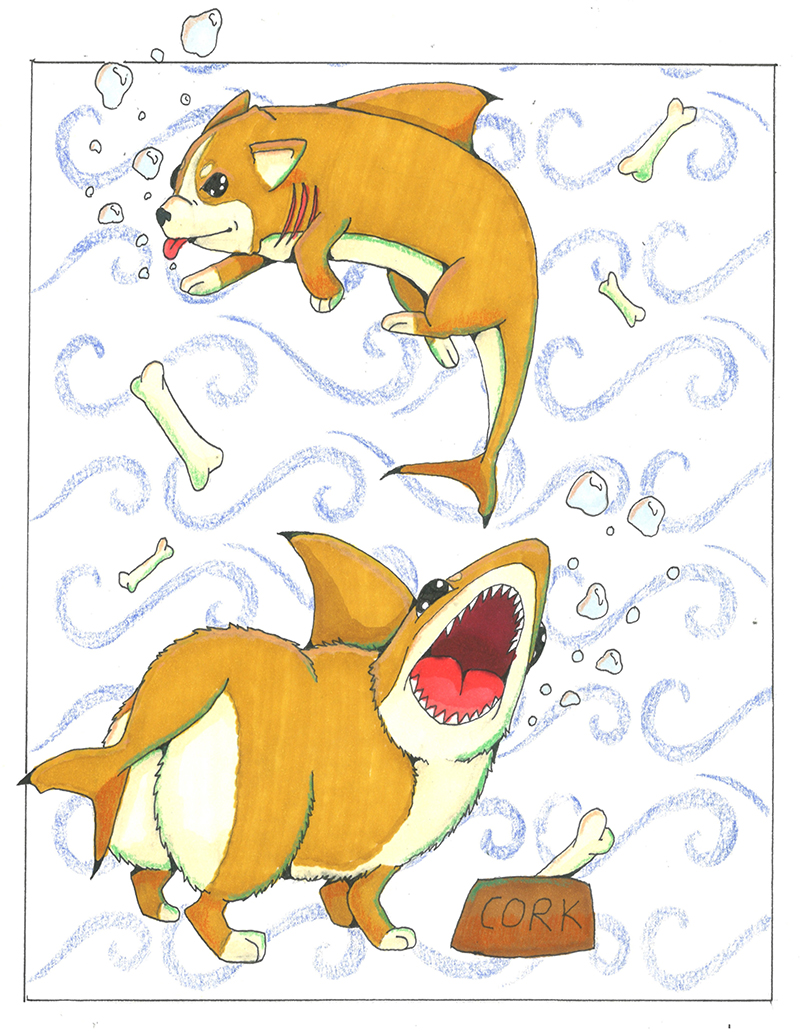
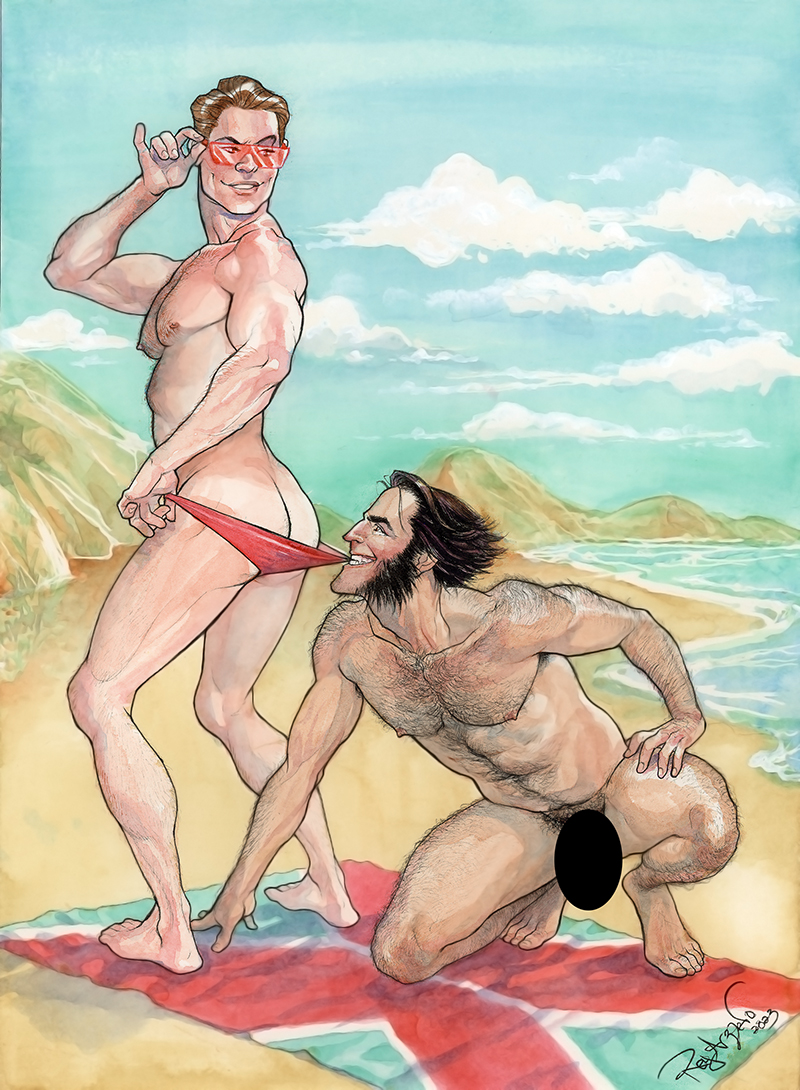
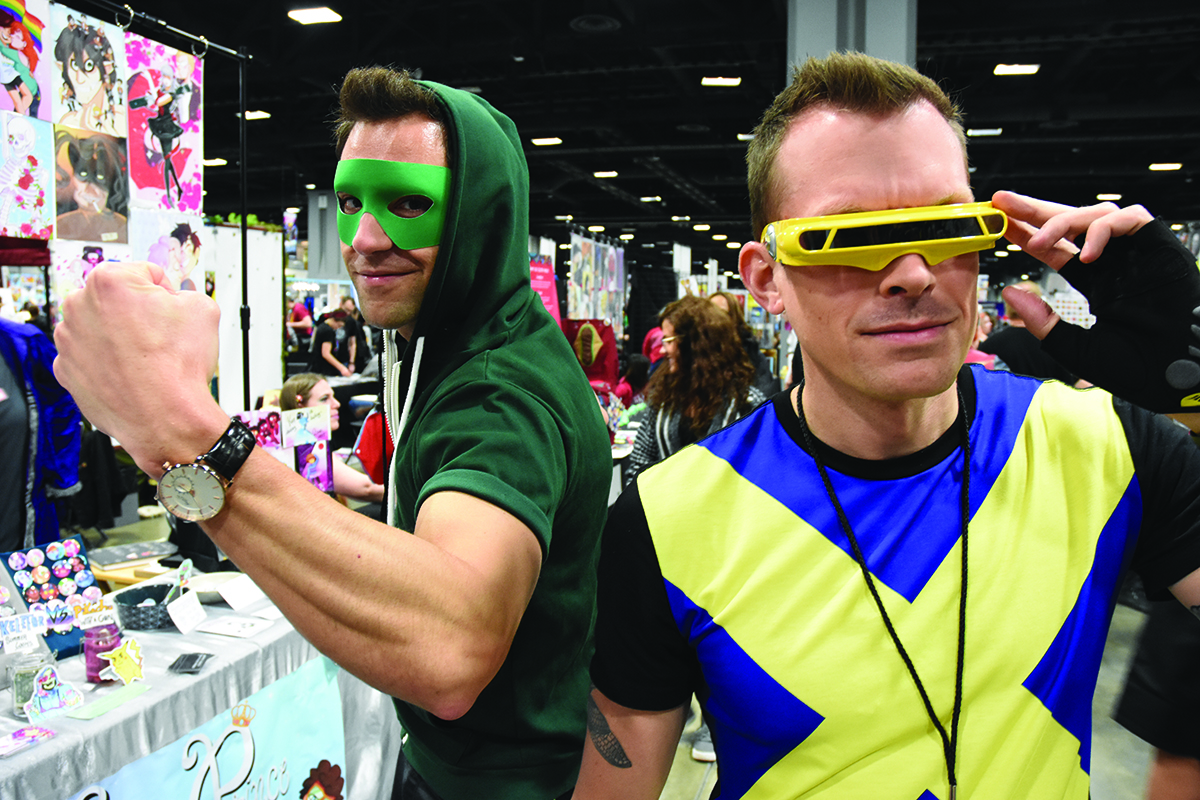
















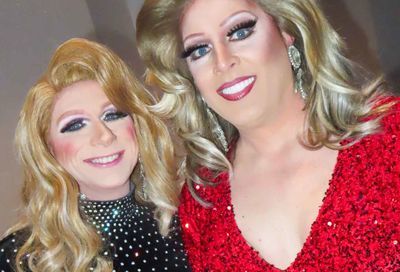
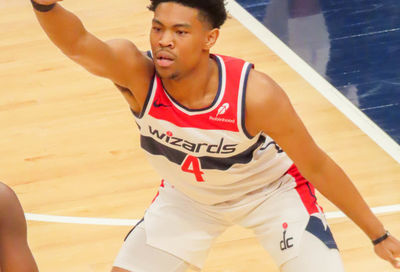
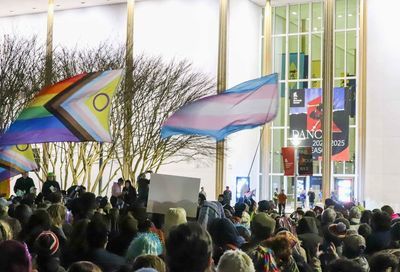
You must be logged in to post a comment.